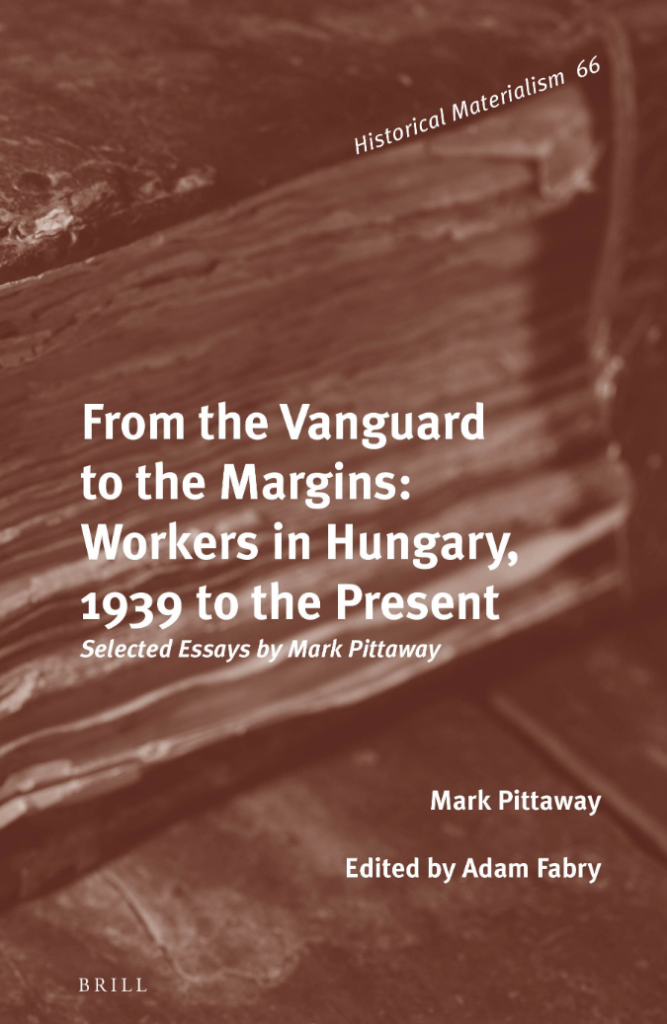Mark Pittaway. Edited by Adam Fabry, Brunel University, London, UK
From the Vanguard to the Margins is dedicated to the work of the late British historian, Dr Mark Pittaway (1971-2010), a prominent scholar of post-war and contemporary Central and Eastern Europe (CEE). Breaking with orthodox readings on Eastern bloc regimes, which remain wedded to the ‘totalitarianism’ paradigm of the Cold War era, the essays in this volume shed light on the contradictory historical and social trajectory of ‘real socialism’ in the region.
Mainstream historiography has presented Stalinist parties as ‘omnipotent’, effectively stripping workers and society in general of its ‘relative autonomy’. Building on an impressive amount of archive material, Pittaway convincingly shows how dynamics of class, gender, skill level, and rural versus urban location, shaped politics in the period. The volume also offers novel insights on historical and sociological roots of fascism in Hungary and the politics of legitimacy in the Austro-Hungarian borderlands.
Biographical note
Mark Pittaway (1971-2010) was a Senior Lecturer in European Studies at The Open University, London, UK. He has published numerous articles, translations and monographs on workers in ‘socialist’ Eastern Europe, especially Hungary, including Eastern Europe, 1939-2000 (Arnold Hodder, 2004) and The Worker’s State (published posthumously by University of Pittsburgh Press, 2012).
Adam Fabry is a Ph.D. Candidate at the Department for Politics & History, Brunel University, London, UK, researching on the political economy of post-transition Hungary. He currently sits on the editorial board of Debatte: Journal for Contemporary Central and Eastern Europe (Routledge) and on the corresponding editorial board of Historical Materialism: Research in Critical Marxist Theory (Brill).
Readership
Table of contents
Acknowledgements.
Abbreviations
Introduction
By Adam B. Fabry
1 Crisis, War and Occupation
2 Building Socialism
3 The Reproduction of Hierarchy: Skill, Working-Class Culture, and the State in Early Socialist Hungary
4 The Social Limits of State Control: Time, the Industrial Wage Relation, and Social Identity in Stalinist Hungary, 1948–53
5 Retreat from Collective Protest: Household, Gender, Work and Popular Opposition in Stalinist Hungary
6 The Revolution and Industrial Workers: The Disintegration and Reconstruction of Socialism, 1953–58
7 Accommodation and the Limits of Economic Reform: Industrial Workers during the Making and Unmaking of Kádár’s Hungary
8 Research in Hungarian Archives on Post-1945 History
9 Making Peace in the Shadow of War: The Austrian-Hungarian Borderlands, 1945–56
10 Workers and the Change of System
11 Fascism in Hungary
12 Towards a Social History of the 1956 Revolution in Hungary
Epilogue
By Nigel Swain
References
Index


